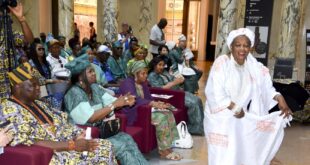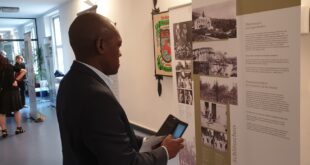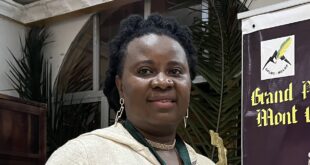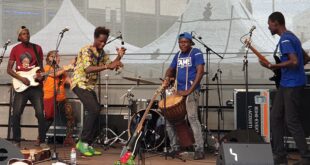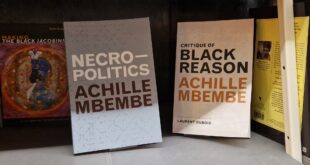Beatrice Onyele’s “Chikwe: es bleibt ein Traum” represents a significant contribution to the growing body of work now known as “Migrant Literature”.
The novel, written in German and whose title roughly translates as “A Forlorn Dream”, chronicles the rise of the eponymous Chikwe, a young and vibrant personality who rose from the lowly rank of rural school teacher to become a regional head of education in south-eastern Nigeria.
Chikwe’s is an improbable story. He was born two months early as a pre-term child, and his mother died as a result of perinatal complications. Her maternal aunt, who was charged with raising the infant, later became his adopted mother after marrying his brother-in-law; that is, Chikwe’s father, Akubundu.
The young Chikwe showed great promise, becoming the apple of his father’s eye to the chagrin of his father’s other wives and half-siblings in a polygamous family.
The first chapters are dedicated to describing the extended family set-up of the Akubundu clan and thereby the rich cultural heritage of the Igbo people of south-eastern Nigeria.

There are also beautifully rendered accounts of village life in pre and post-colonial Igboland. In many ways, this work is surely a successor to Chinua Achebe’s famous trilogy comprising Things Fall Apart, Arrow of God and No Longer at Ease which essentially tackle the same issues relating to the adjustment of the Igbos, nay Africans, after the disruption of their cultures by colonial forces.
In the book’s early chapters, we witness Akubundu, an influential and wealthy village head of the fictitious Umuahia-Ochei, using his powers to promote and preserve the cultures of his forefathers and help to maintain peace with neighbouring villages as the White man starts to make in-roads into rural society. His peace-making skills are also at play domestically in his polygamous home, as his wives jostle for his favours, amid petty jealousy, backstabbing and envy.
The author pulls no punches when relating the injustice inherent in a system that still treats women as second-class citizens – they are excluded from inheritance, married off to men of their parents’ liking, and sometimes not given any form of formal training. And so on and so forth.
Without knowing it, Chikwe had been “coupled” with Ijeoma in their infancy by both of their parents, with the implicit promise of matrimony when both reach adulthood. Such was the custom back then in pre-colonial village life.
As both Chikwe and Ijeoma come to the realisation of what happened, they are filled with indignation and their forced relationship is initially charged with tension and mutual distrust, with Ijeoma suspecting that Chikwe had been privy to the deal. But the love they have developed for each other is powerful enough to overcome those initial irritations. And so begins, following mutual consent, the long-winding preparations for the consummation of their relationship by way of matrimony.
Following the bountiful marriage ceremonies, we are fast-forwarded eight years, where Chikwe, now with three children, a stable family and a flourishing professional life, has become a highly respected educational administrator. Then, as with all human beings, discontent sets in and, like Charles Dickens’s Oliver Twist, Chikwe begins to crave more.
Consumed by ambition, he sets out to capture the proverbial Golden Fleece in one of Germany’s elite universities. But alas, his departure from Nigerian shores coincides with the beginning of the Nigerian civil war. His flight to and arrival in Germany are accompanied by inescapable culture shock, with the invariable migrant experiences to boot – unkind eyes publicly piercing and dividing and shop windows reflecting skin-deep difference to the locals, to paraphrase the Kenyan poet Joseph Kariuki.
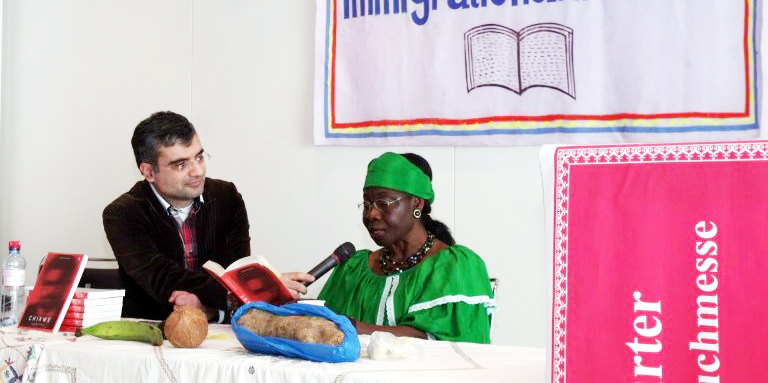
Fellow Africans in Frankfurt help to ease his settling-down. Chikwe excels initially in his academic endeavours. Then, some months into his programme, his beloved father dies in hospital from complications after suffering a bone fracture. Chikwe is forced to travel home to participate in the passage rites. His stay in Europe conditions him to view the celebratory mood of the villagers during the burial with “disgust”. The debt incurred through the burial expenses is also a thorn in his side.
Onyele problematises this rather anachronistic aspect of African culture which takes cognisance neither of the dead nor of the mourning survivors, but rather panders to the demands of the purported condolence-payers, who end up being more interested in the food, drink and memorabilia on offer.
The pitfalls and dangers of polygamy also rear their ugly heads at this point in the novel as Akubundu’s sons are engaged in a war of inheritance, the defenceless being deprived of their rights in a Darwinian struggle for survival of the fittest.
Chikwe, with his recently acquired influence, seeks to settle the matter amicably while patching up differences. It proves to be a transient success, for Chikwe returns to Germany to complete his studies and the old, exploitative order is promptly restored in his absence.
Shortly thereafter, the Civil War is in full bloom, resulting in the wanton destruction of life and property. South-eastern Nigeria, aka Biafra – which was waging a secessionist war against the parent country, Nigeria – finally loses out. This has disastrous consequences for Chikwe and his education in Germany since he was on a scholarship from the Nigerian government. The scholarship is duly withdrawn. Chikwe now has to do menial jobs to get by. This brings him face to face with a cold, insensitive and uncaring society in which skin colour overrides any other consideration.
Finally, Chikwe’s resolve is broken. He develops high blood pressure and suffers a stroke which results in partial paralysis and speech impediment. His rehabilitation proves to be complicated; he develops pneumonia and later dies of multiple organ failure in the hands of his beloved Ijeoma, who has travelled to Germany against all odds to witness the passing away of her first and only love.
Michael Nnaji
- Chikwe: Es bleibt ein Traum
- Beatrice O. Onyele
- Amani Verlag, 2013
- ISBN 978-3-86320-028-2
 THE AFRICAN COURIER. Reporting Africa and its Diaspora! The African Courier is an international magazine published in Germany to report on Africa and the Diaspora African experience. The first issue of the bimonthly magazine appeared on the newsstands on 15 February 1998. The African Courier is a communication forum for European-African political, economic and cultural exchanges, and a voice for Africa in Europe.
THE AFRICAN COURIER. Reporting Africa and its Diaspora! The African Courier is an international magazine published in Germany to report on Africa and the Diaspora African experience. The first issue of the bimonthly magazine appeared on the newsstands on 15 February 1998. The African Courier is a communication forum for European-African political, economic and cultural exchanges, and a voice for Africa in Europe.





